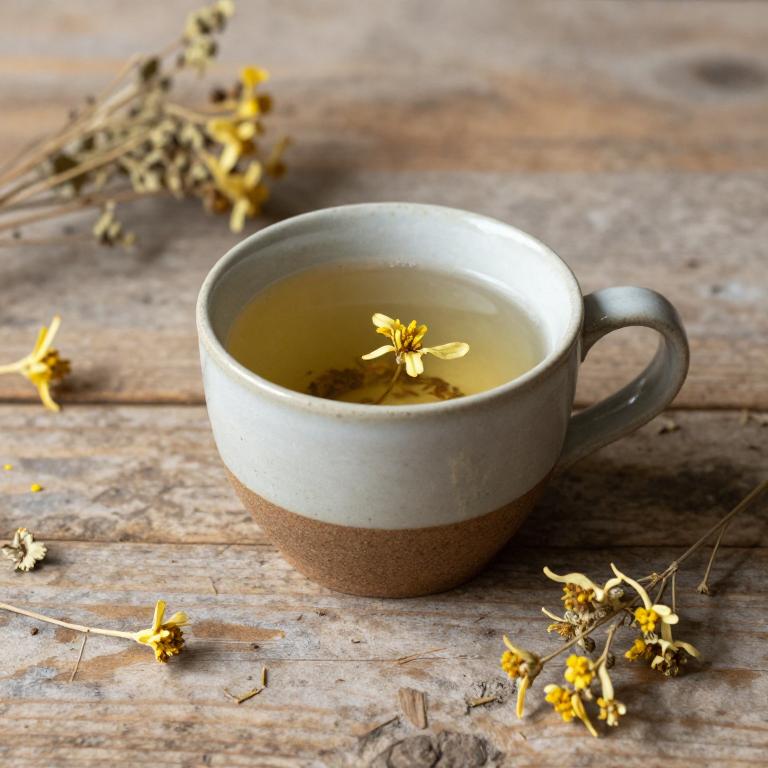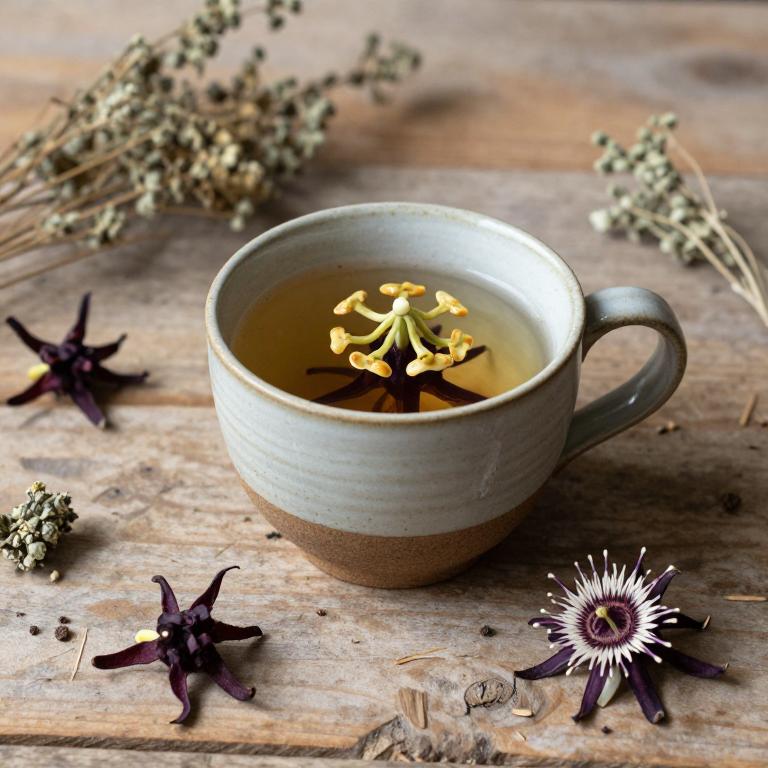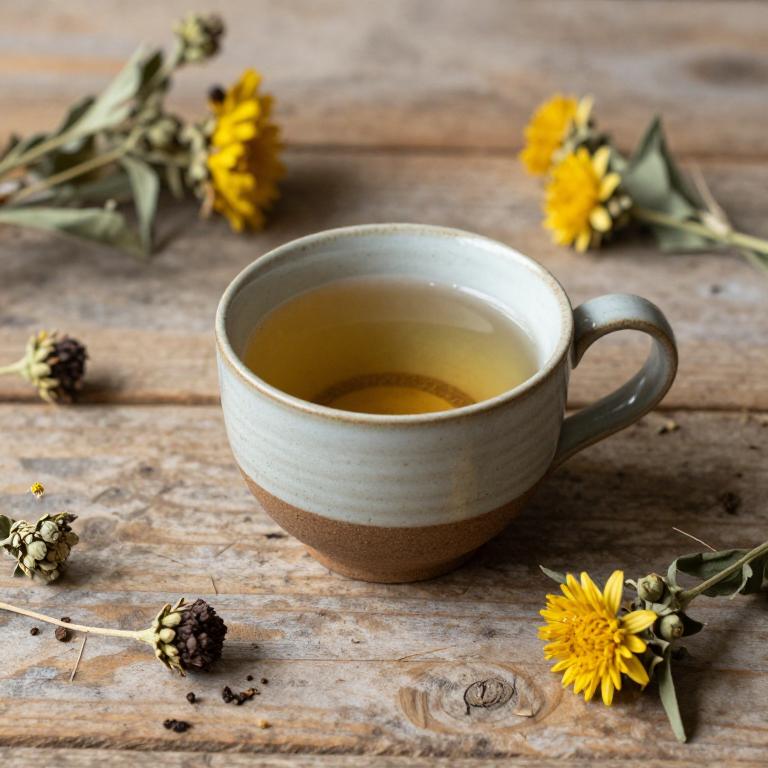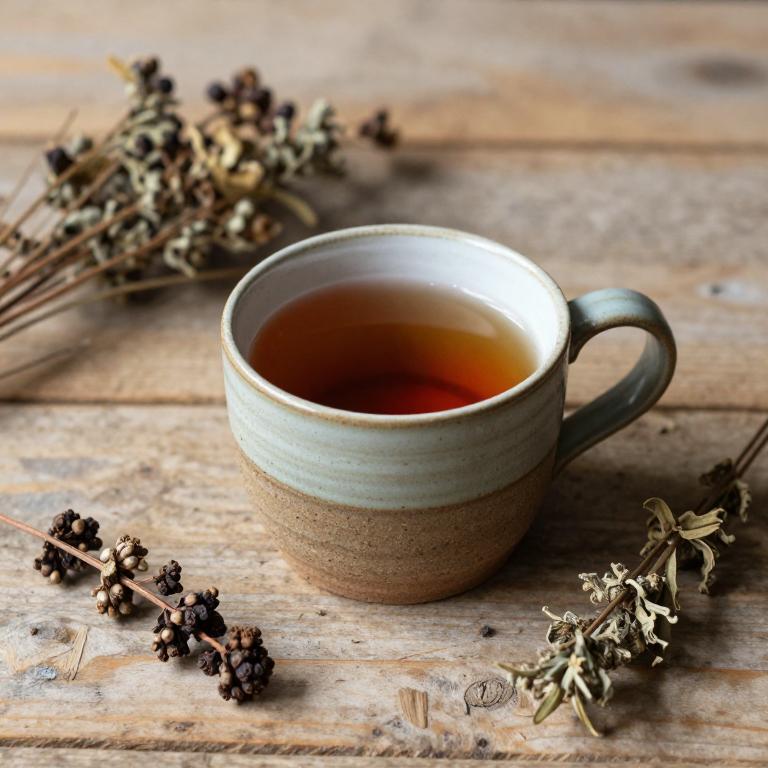10 Best Herbal Teas For Anxiety

Herbal teas have gained popularity as a natural remedy for managing anxiety due to their calming properties and minimal side effects compared to pharmaceutical options.
Commonly used herbs such as chamomile, lavender, and valerian root are known for their ability to reduce stress and promote relaxation. These teas work by interacting with the nervous system to ease tension and improve mood, often through the presence of compounds like apigenin and linalool. Drinking herbal tea can be a soothing ritual that helps individuals unwind and find inner peace.
While they are not a substitute for professional treatment, herbal teas can be a valuable complement to an overall anxiety management strategy.
Table of Contents
- 1. Valerian (Valeriana officinalis)
- 2. Maypop (Passiflora incarnata)
- 3. Licorice (Glycyrrhiza glabra)
- 4. Heartworts (Leonurus cardiaca)
- 5. Camellia (Camellia sinensis)
- 6. Chamomile (Matricaria chamomilla)
- 7. Kava (Piper methysticum)
- 8. Stinging nettle (Urtica dioica)
- 9. Chaste tree (Vitex agnus-castus)
- 10. Salvia (Salvia officinalis)
1. Valerian (Valeriana officinalis)

Valeriana officinalis, commonly known as valerian, is a perennial plant widely used in herbal medicine for its calming properties.
Valerian root tea is often recommended for individuals experiencing anxiety due to its ability to promote relaxation and improve sleep quality. The herb contains compounds like valerenic acid and volatile oils that may interact with the brain's GABA receptors, helping to reduce nervous system activity. Regular consumption of valerian tea may offer mild relief from symptoms of anxiety, though it is typically most effective when used as part of a holistic approach to stress management.
As with any herbal remedy, it is advisable to consult a healthcare professional before incorporating valerian into one's routine, especially if taking other medications or supplements.
2. Maypop (Passiflora incarnata)

Passiflora incarnata, commonly known as passionflower, is a herbal remedy widely used for its calming effects on the nervous system.
This plant contains compounds such as flavonoids and alkaloids that may help reduce anxiety by promoting relaxation and improving sleep quality. Passionflower herbal teas are often consumed as a natural alternative to traditional anxiety medications due to their mild and soothing properties. Studies suggest that regular consumption of passionflower tea may help alleviate symptoms of mild to moderate anxiety without the side effects associated with pharmaceutical treatments.
As a result, it has become a popular choice for individuals seeking holistic approaches to managing stress and emotional well-being.
3. Licorice (Glycyrrhiza glabra)

Glycyrrhiza glabra, commonly known as licorice root, has been traditionally used in herbal medicine for its calming properties, making it a popular ingredient in teas aimed at reducing anxiety.
The herb contains compounds like glycyrrhizin and flavonoids, which may help modulate the body's stress response and promote a sense of relaxation. When brewed into a tea, licorice root is often combined with other calming herbs such as chamomile or lemon balm to enhance its soothing effects. However, excessive consumption of licorice root tea can lead to side effects like high blood pressure due to its impact on mineral balance in the body.
As with any herbal remedy, it is advisable to consult a healthcare provider before using licorice root tea, especially for individuals with preexisting health conditions.
4. Heartworts (Leonurus cardiaca)

Leonurus cardiaca, commonly known as heart's-ease, is a traditional herb that has been used for centuries to support emotional well-being and alleviate symptoms of anxiety.
This herb contains compounds such as flavonoids and tannins, which may contribute to its calming effects on the nervous system. Herbal teas made from Leonurus cardiaca are often consumed for their soothing properties, helping to reduce feelings of stress and promote relaxation. The gentle nature of this herb makes it a popular choice for those seeking natural remedies for mild anxiety.
However, it is advisable to consult with a healthcare professional before incorporating it into a wellness routine, especially for individuals with existing health conditions or those taking other medications.
5. Camellia (Camellia sinensis)

Camellia sinensis, the plant from which green, black, and white teas are derived, has been traditionally used for its calming effects on the mind and body.
Herbal teas made from Camellia sinensis contain compounds like L-theanine and caffeine, which can influence mood and reduce feelings of anxiety. Studies suggest that the amino acid L-theanine may promote relaxation by increasing alpha brain wave activity, leading to a state of calm alertness. Regular consumption of Camellia sinensis-based teas may help manage stress and anxiety when consumed in moderation.
However, it is important to note that individual responses to these teas can vary, and they should not replace professional mental health treatment.
6. Chamomile (Matricaria chamomilla)

Matricaria chamomilla, commonly known as chamomile, is a popular herbal tea used for its calming effects on the mind and body.
This tea contains compounds like apigenin, which may bind to receptors in the brain that help reduce anxiety and promote relaxation. Chamomile tea is often consumed as a natural remedy for stress and mild anxiety due to its mild sedative properties. Its soothing aroma and gentle flavor make it an accessible and pleasant option for daily use.
Studies suggest that regular consumption of chamomile tea may help alleviate symptoms of anxiety when used as part of a holistic approach to wellness.
7. Kava (Piper methysticum)

Piper methysticum, commonly known as kava, has been traditionally used in the Pacific Islands for its calming effects, and its herbal tea is gaining popularity for its potential to alleviate anxiety.
The active compounds in kava, known as kavalactones, interact with the central nervous system to produce a soothing, sedative effect without causing drowsiness. Studies suggest that regular consumption of kava tea may help reduce symptoms of generalized anxiety disorder by promoting relaxation and reducing stress. However, it is important to note that kava should be used with caution, as high doses or prolonged use may lead to liver toxicity in some individuals.
As a natural remedy, kava tea offers a holistic approach to managing anxiety, though it is advisable to consult a healthcare professional before incorporating it into one's wellness routine.
8. Stinging nettle (Urtica dioica)

Urtica dioica, commonly known as stinging nettle, is a herbal plant that has been traditionally used for its potential calming effects on the mind and body.
When prepared as a tea, it may help alleviate symptoms of anxiety by promoting relaxation and reducing stress levels. The tea is believed to support the nervous system and may enhance mood through its rich content of minerals and antioxidants. While scientific evidence is still emerging, many people find comfort in its mild, earthy flavor and its soothing properties.
As with any herbal remedy, it is advisable to consult a healthcare professional before incorporating urtica dioica tea into an anxiety management routine.
9. Chaste tree (Vitex agnus-castus)

Vitex agnus-castus, commonly known as chasteberry, is a herbal remedy that has been traditionally used to support hormonal balance and alleviate symptoms of anxiety.
This herb contains compounds that may influence the production of neurotransmitters such as serotonin and dopamine, which are linked to mood regulation. Chasteberry tea is often consumed for its calming effects and is believed to help reduce feelings of stress and worry. Studies suggest that it may be particularly beneficial for women experiencing anxiety related to hormonal fluctuations, such as during menstruation or menopause.
However, it is important to consult with a healthcare professional before using chasteberry tea, especially if you are taking other medications or have underlying health conditions.
10. Salvia (Salvia officinalis)

Salvia officinalis, commonly known as sage, has been traditionally used in herbal teas to support mental well-being and alleviate symptoms of anxiety.
The plant contains compounds such as rosmarinic acid and flavonoids, which may help reduce stress and promote a sense of calm by influencing neurotransmitter activity in the brain. While scientific research on sage's effects on anxiety is still emerging, some studies suggest it may have adaptogenic properties that help the body manage stress more effectively. When brewed as a tea, sage is often consumed in moderation to avoid potential side effects, especially in higher doses.
Overall, sage herbal tea can be a natural complement to anxiety management when used as part of a holistic approach to mental health.